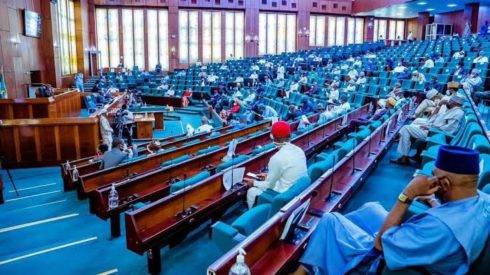The push for the creation of Adada State in Nigeria’s Southeast region reached a significant milestone as the bill passed its first reading in the House of Representatives. Sponsored by Honorable Martins Oke, a lawmaker representing the Enugu State constituency under the People’s Democratic Party (PDP), the bill underscores the long-standing demand for the recognition of Adada as a separate state within the federation.
This legislative development highlights the growing political momentum for equitable state creation to address the developmental imbalance in the Southeast. Hon. Oke emphasized the historical, cultural, and economic justifications for the proposed state, noting its potential to catalyze socio-economic growth and enhance governance at the grassroots level.
Honorable Martins Oke: Championing Local Aspirations
Honorable Martins Oke has emerged as a pivotal figure in advancing the cause for Adada State. In his presentation, he stressed that the demand for Adada is rooted in the aspirations of the Nsukka people, who seek a distinct administrative structure to foster regional development. The lawmaker’s efforts reflect his dedication to addressing long-standing grievances within his constituency.
Hon. Oke argued that creating Adada State would alleviate the administrative burden on Enugu State, ensuring better allocation of resources and infrastructural development. His advocacy has garnered widespread support from stakeholders across the Southeast, further reinforcing the legitimacy of the proposal.
Southeast Stakeholders Rally Behind the Bill
The bill has sparked widespread support among political, traditional, and civil society groups in the Southeast. Proponents believe that Adada State will bring administrative autonomy and foster unity within the region. Local leaders have highlighted the cultural heritage of the Nsukka people as a critical factor supporting the case for statehood.
Various community organizations have expressed optimism, urging the National Assembly to expedite the legislative process. Stakeholders also argue that the creation of Adada State aligns with the federal government’s goal of equitable resource distribution and decentralization of governance.
Constitutional Requirements for State Creation
While the first reading of the bill is a significant milestone, the journey to statehood remains arduous. According to Section 8 of the 1999 Constitution of Nigeria, the process requires a detailed referendum, approval from two-thirds of the National Assembly, and consent from the majority of states. This multi-layered process ensures that the creation of new states is rooted in national consensus.
Legal experts have highlighted the need for robust advocacy to navigate the constitutional hurdles. Hon. Oke and his supporters are already mobilizing stakeholders to engage with relevant legislative and executive bodies to ensure the proposal gains the necessary traction.
Economic and Administrative Implications of Adada State
The creation of Adada State is projected to bring significant economic and administrative benefits to the Southeast. Proponents argue that the new state would accelerate infrastructural development, create jobs, and attract investments by unlocking the region’s untapped agricultural and mineral resources.
Administratively, the formation of Adada State is expected to improve governance by bringing government closer to the people. With a dedicated state apparatus, local communities can expect enhanced service delivery and more significant opportunities for grassroots participation in decision-making.
Opposition and Next Steps in Legislative Process
Despite widespread support, some stakeholders have expressed reservations about the financial implications of creating a new state. Critics argue that the current economic challenges facing Nigeria may not support the establishment of additional states. Others caution against political maneuvering that could derail the process.
The bill now awaits its second reading, where lawmakers will deliberate further on its merits. Hon. Oke remains optimistic, urging Nigerians to support the initiative as a pathway to balanced development and national unity. The outcome of subsequent legislative stages will determine whether the dream of Adada State becomes a reality.
Table of Contents
Discover more from OGM News NG
Subscribe to get the latest posts sent to your email.














